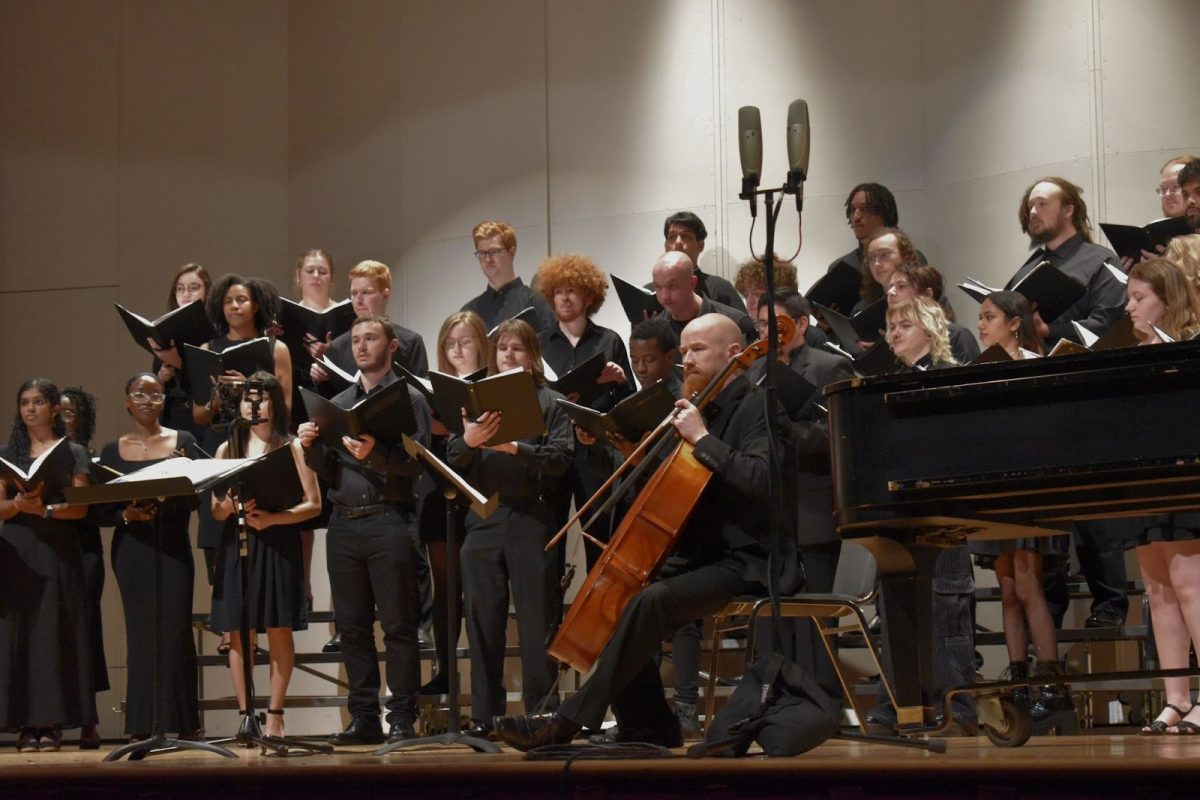
I was born on Valentine’s Day. Like anyone cursed to be born on a holiday, this has led to an odd mix of guilt and dislike toward Feb. 14 as a whole, both as a celebration of “love”and a celebration of my birth.
However, this has not stopped me, like many other “lonely” people, from enjoying the clearance chocolate that can be bought on the day after people have gone through stores to buy cheap chocolate for their partners instead of something more meaningful.
According to a 2019 article on time.com, the Time magazine website, some have speculated that how we celebrate Valentine’s Day can be traced back to the ancient Roman holiday Lupercalia. But the Time article states that there’s little evidence of any connection between the two beyond the time of year. Lupercalia, a festival associated with fertility rituals — not romantic love or gift-giving — occurred on Feb. 15, from around the third century B.C. to the end of the fifth century.
Aleteia.org, an online publication with links to the Catholic Church, states that “February 14 has been associated with St. Valentine for centuries, dating back to some of the earliest calendars” of the church. However, while acknowledging that there were multiple saints named Valentine, aleteia.org reports that only one “is connected to the modern celebration of Valentine’s Day. That St. Valentine is a 3rd-century Roman priest who was martyred for his Christian faith.”
St. Valentine, who lived between 175 and 245, was an example of sacrifice and dedication to those in need, “known for working miracles and healing the sick,” according to aleteia.org. There are no mentions of romantic love associated with him until couples started to travel to his tomb and make appeals for their unions.
It’s important to note that the first part of the holiday’s name is often left out; the full name is the feast day of St. Valentine. However, a claim can be made that now Valentine’s Day and the feast day of St. Valentine are two very different holidays despite happening on the same day.
The feast day of St. Valentine is observed in thanks for all of the St. Valentines, but more specifically the ones before the St. Valentine who lived in the third century. Valentine’s Day, on the other hand only loosely refers to the third-century St. Valentine at this point.
Traditionally, feast days are celebrated by processing through the streets and hosting festivals. Some feasts feature special Masses and a few specific ones even have nine-day novenas. In the case of the multiple saints named Valentine, this celebration would normally be a special meal or dessert and attending Mass on Feb. 14 in thanks. However, it is important to note that the feast day was replaced with the celebration of two other saints in the 1960s, resulting in the holiday only being celebrated by smaller groups in the west.
Hilariously, this makes the celebrations that are common in kindergarten, where you go around and give out candy to everyone in your class, the closest to the feasts once held on Feb. 14. It’s incredibly ironic that one of the traditions that is viewed as a modern symbol of childhood is what’s left of a historic Catholic holiday in American culture.
This leads into my personal views on Valentine’s Day: that love in any form should be expressed however you feel best suits you and the people you care about. Gifts of monetary value or things that you’ve purchased for loved ones should not be looked down on, but they should not be viewed as a societal expectation and a requirement to show affection.
I strongly believe that societal expectations and pressure to purchase gifts and present them as part of a larger romantic gesture should not exist. It undermines both the original intended purpose of the holiday, remembering the martyrs that became saints, as well as the purpose that has developed during more modern times.
Holiday seasons, not just Valentine’s Day, should revolve around spending quality time with loved ones, expressing gratitude and spreading love and kindness. I firmly believe that Valentine’s Day should not be about the materialistic aspect of gift-giving. The pressure to buy expensive gifts and plan elaborate romantic gestures can create unnecessary stress and financial burden, detracting from the joy of the day.
In addition, the constant bombardment of advertisements and promotions during early February can create a sense of inadequacy and comparison among individuals. People may feel like they are not doing enough or that their gifts are not as impressive as others, leading to feelings of insecurity and dissatisfaction.
All of these advertisements and promotions also impact those who aren’t in a relationship. I know that I’ve felt pressured in the past to find someone to give things to on Valentine’s Day despite it also being my birthday.
The pressure to present the perfect gift and plan the perfect romantic gesture can also put a strain on relationships. Couples may feel obligated to outdo each other or meet unrealistic expectations, causing unnecessary tension and disappointment.
All of these things mean that ultimately I’m thrilled by the time that the exhausting 24 hours that make up Feb. 14 come to an end each year.












